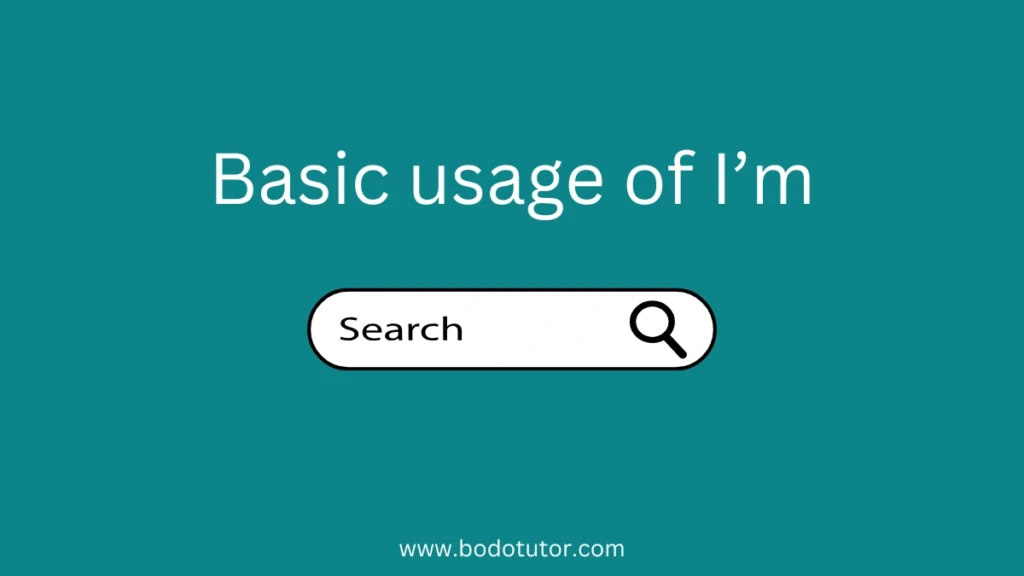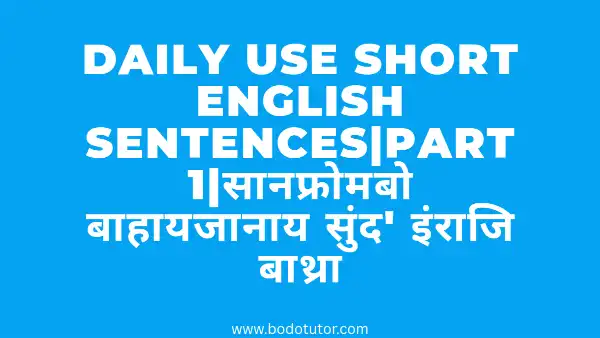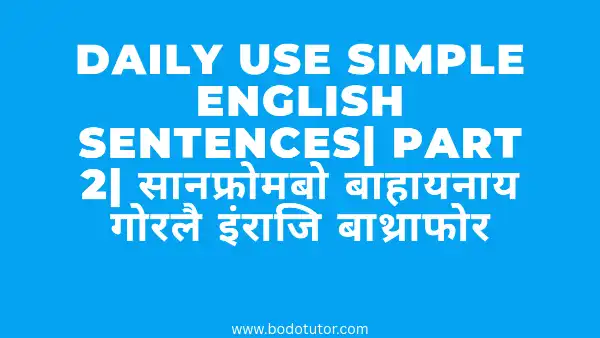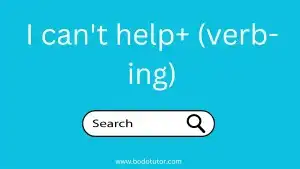The phrase “I have” is indeed a straightforward way to express possession or ownership. Here’s an explanation of its use with examples:
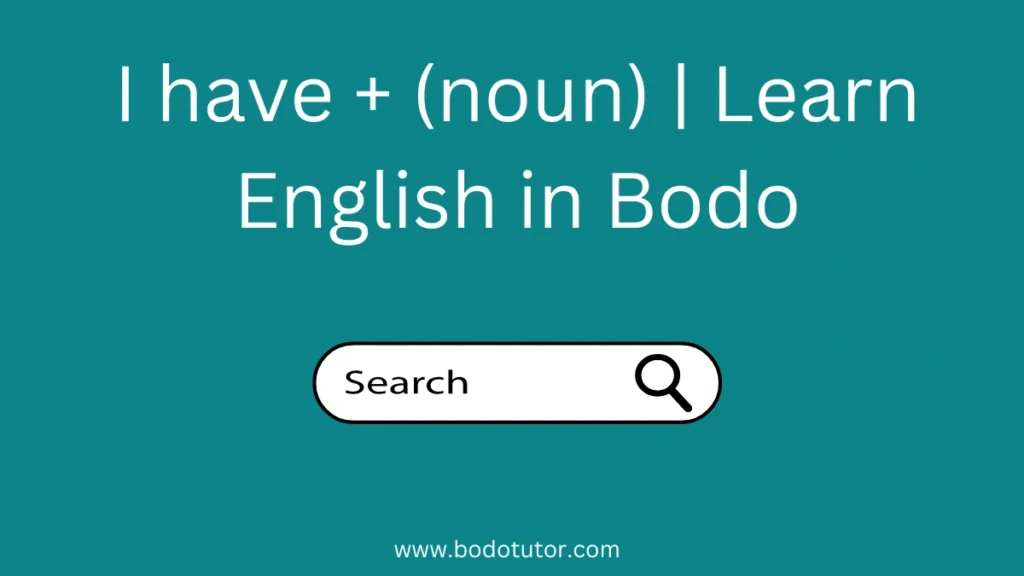
I have + (noun) | Learn English in Bodo
1. Informing about possession or acquisition:
- “I have” + noun is used to state what you own, possess, or experience.
Examples:
- “I have a cat.”/ “आंहा मासे मावजि दं।
- “I have a nice car.” /“आंहा गंसे मोजां गारि दं।”
- “I have a house.” /“आंहा गंसे न’ दं।
- “I have a computer.”/ “आंहा कम्पिउटार दं।
- “I have a headache.”/ “आंहा खर’ सानाय दं।”
2. Using “cannot” and “won’t” with “I have”:
- By adding “cannot” or “won’t,” you express what you will not allow, tolerate, or accept.
Examples:
- “I cannot have that behavior in my house.” / “आंनि न’आव बेबादि आखु थानो हाया।”
- “I won’t have anything to do with that.”/ “आंहा बेजों जेबो सोमोन्दो गैया।”
- “I won’t have it any other way.”/ “आं बेखौ गुबुन लामाजों मोननाय नङा।”

